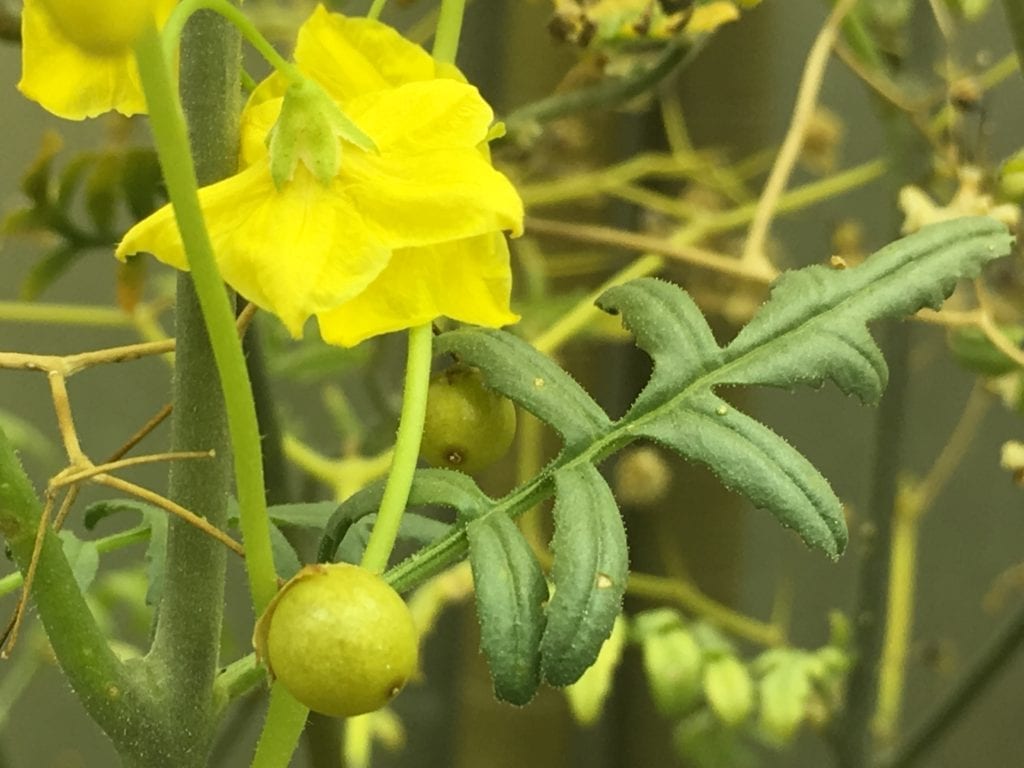News
Open-access wild tomato genome offers valuable insights for tomato growers, crop scientists

Solanum lycopersicoides is a wild tomato species related to the domesticated Solanum lycopersicum.
The Boyce Thompson Institute’s Computational Biology Center (BCBC) in collaboration with RWTH Aachen University has released an annotated genome sequence for Solanum lycopersicoides, a wild relative of tomato.
The genome has been assembled to near chromosome scale using Next Generation Sequencing (NGS) technologies. The S. lycopersicoides genome sequence and accompanying annotation provide valuable new information on traits that dramatically affect crop yields, such as pest/pathogen resistance and cold tolerance.
Tomato is one of the world’s largest value vegetable crops, making it a research priority for crop scientists. Recently, yields have been adversely affected by cold spells, pests, and pathogens including bacterial speck disease.
While there is an extensive library of genomic information currently available for cultivated tomato, close relatives such as S. lycopersicoides encompass untapped genetic value for breeders and research scientists. S. lycopersicoides is notable for its ability to withstand cold weather and to resist infection by Pseudomonas syringae, the pathogen that causes bacterial speck.
The new genome sequence offers the opportunity for innovative breeding programs that may hold the ability to confer S. lycopersicoides’ desirable traits to marketable tomato varieties.
Years of inbreeding and domestication have caused cultivated tomato varieties to lose tremendous amounts genetic diversity. Because wild varieties have not gone through these bottlenecks, they retain much of this diversity.
“S. lycopersicoides retains several economically valuable traits, representing a wealth of genetic knowledge that does not exist in cultivated tomato and thus is not immediately available to scientists” says Susan Strickler, who was involved in the project and is Director of the BCBC.
The differences between the cultivated and wild species make it difficult to map wild tomato genes to the traditional tomato reference genome. The team used high-quality PacBio sequence alongside RNA sequence and transcriptome data to assemble and annotate the new genome.
Moving forward, the BCBC will work with collaborators to develop mapping populations for the characterization of economically important traits that directly affect crop yields. The information therein will be valuable for diverse stakeholders including research scientists, breeders, growers, private corporations, and ultimately, consumers.
This project was completed in collaboration between the BCBC and the research groups of Jim Giovannoni, Greg Martin, and Lukas Mueller at BTI as well as Bjorn Usadel’s group at RWTH Aachen University. Funding for this project was generously provided by the Triad Foundation’s Plant and Human Health Grant, National Science Foundation IOS-1546625, the ERA-CAPS program supported by the National Science Foundation, and Deutsche Forschungsgemeinschaft grant no. US98/7-1.
This is a pre-publication genome sequence release. All rights are retained by the Boyce Thompson Institute Computational Biology Center and RWTH until publication. Users must agree to data access terms as specified. For further information, contact Susan Strickler at srs57@cornell.edu or (607)-254-3569.
Subscribe to BTI's LabNotes Newsletter!
Contact:
Boyce Thompson Institute
533 Tower Rd.
Ithaca, NY 14853
607.254.1234
contact@btiscience.org
Copyright © 2023 | Boyce Thompson Institute | All rights reserved | Privacy Policy | Cookie Policy


